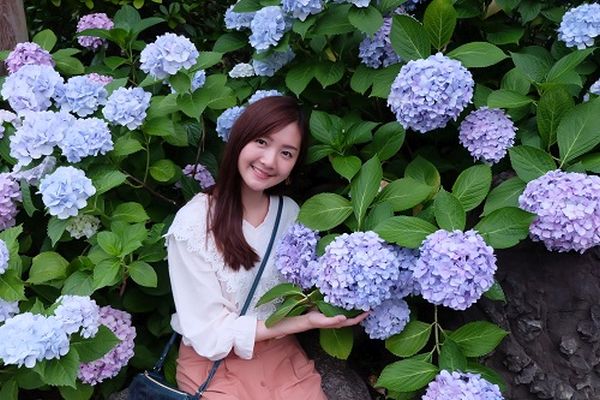Raksanan Karawekpanyawong
Nationality
Thailand
University/Institution Name
Niigata University
Department/Faculty
Faculty of Dentistry
Period of study abroad
2018-2022
What did you do before studying in Japan?
Working as a lecturer

Thailand
Niigata University
Faculty of Dentistry
2018-2022
Working as a lecturer
Japan is such a fascinating country for its uniqueness in terms of foods, cultures, and language.
Thai children were growing up with Japanese cartoons and TV shows. Japanese products and foods are unbelievably popular in my country, so I have absorbed Japanese culture little by little. Yet, it is still appealing to know how real Japan looks like.
I prepared myself according to the scholarship requirements and searched for personal connections. In the case of my scholarship, it requires a TOEFL score of at least 100, so I had to study English very hard back then. Apart from financial support, if you are not MEXT students (direct examination), it is quite important to find some connections. For the MEXT students by recommendations and privately supported students, it is strongly recommended to have personal communications before applications. Since most information regarding Ph.D. courses available on the internet is not written in English, I found it was very challenging to do it on my own. So, I tried looking at the list of universities having MOU with mine and tried to contact alumni whom I know them. I also consulted other lecturers who have worked with universities in Japan and can introduce me to their Japanese colleagues. With the help of a recommender, I introduced myself to my professor by e-mails, and we agreed to meet in an academic conference to discuss course descriptions, timing, and the possibility of admission. After I decided to come to Japan, I started studying Japanese as much as possible, and I am glad I have done that! It is super necessary for a happy life here!
My life in Japan is a bitter-sweet experience. Japan is definitely a beautiful and clean country.
There are a ton of amazing things that I can never find them in Thailand, for example, systematic garbage management, convenient public transportation, a sense of safety everywhere, the beauty of seasonal changes, and so on. However, studying abroard is hard for everyone. I am having culture-shock, getting stress, and feeling lonesome more than ever. After all, I believe that I will be able to make it through and will be transformed into a better version of myself.
For those who wish to study in Japan, my first advice is to study Japanese. Studying Japanese is not a requirement for studying here, but it helps you to be less dependent on others. Moreover, it helps you to understand Japanese cultures, and Japanese people do also appreciate it when foreigners try to speak a little bit of Japanese. Second, get to know Japanese customs before coming. Japan is a place full of unwritten rules, which are difficult for foreigners to comply with all of them. A core cultural concept of Japanese society is "harmony." Coming to Japan, there will always be occasions that you can feel invisible pressure forcing you to follow what most of the Japanese do. You will have to balance individuality and the common good, your own happiness and social image, to maintain the harmony. While the Japanese are relatively change-resistant, being adaptive and open-minded are among the most essential qualities of foreign students to have to comfortably live in Japan.